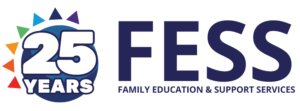“It teaches people how to listen for the warning signs and the risk factors,” explained trainer Scott Hanauer with Family Education and Support Services.
We’ve all heard of CPR training to save someone from a heart attack. This new training is called QPR: Question, Persuade, Refer. It’s needed now more than ever with suicide rates on the rise.
Thurston Youth Alive cites a recent survey that shows 22% of 6th-graders have thought of suicide, and that number increases with each grade level.
“One of my colleagues says he has a phrase I really like that says human connection is suicide prevention, so somebody who has the courage to ask questions,” said Hanauer.
Those questions could include:
Are you thinking about hurting yourself?
Aare you thinking about going to sleep and not waking up?
“These are the kinds of questions that do take some courage to ask people, particularly if that person is very close to you,” said Hanauer.
Some may not ask, afraid they’ll be exposing someone’s mental state, but asking is the only way to know what they’re going through and how you or someone else might be able to help them. Plus, the more positive adults in a young person’s life, the better.
Those two adults could be a coach, neighbor, aunt or uncle, willing to provide mentorship. The goal is to help young people become more resilient.
Hanauer also said that young people often know who is more at risk in their school or in their community before the adults do, and they learn the importance of asking. He recalls a girl saying: “I’ve learned that it’s better to have a mad friend than a dead friend.”
“And it was like, oh, she got it you know. And that’s really what it takes; the courage to ask the question, so it’s not so important that you ask precise questions but just to be able to ask the question of somebody, who’s having a bit of a health crisis,” said Hanauer.
The QPR suicide prevention training sessions are just 2 hours long and entirely virtual, so they are open to all and free.
The training takes place once per month.
